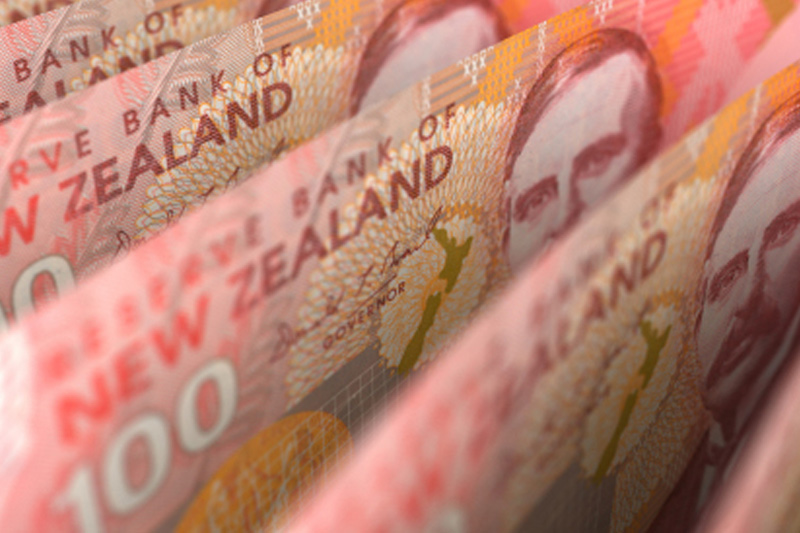Investing.com - The New Zealand dollar rallied to its highest level in two-and-a-half years against the U.S. dollar on Thursday after the country posted a larger than expected trade surplus, while comments by New Zealand’s deputy central bank governor also underpinned demand.
NZD/USD hit highs of 0.8680, the strongest level since early August 2011 and was last up 0.98% to 0.8673.
The pair was likely to find support at 0.8590, the session low and resistance at 0.8780.
The kiwi strengthened after official data showed that New Zealand's trade surplus expanded to NZ$818 million in February, from NZ$286 million in January, due in large part to higher prices for dairy products, the country’s largest export.
Analysts had expected the surplus to expand to NZ$595 million last month.
The kiwi received an additional boost after Reserve Bank Deputy Governor Grant Spencer indicated that the bank could remove measures to cool the housing market, which would allow inflation to rise.
In the U.S., data released on Thursday showed that U.S. jobless claims fell to the lowest level since late November last week, while another report showed that U.S. fourth quarter growth was revised higher.
Official data showed that U.S. gross domestic product was revised up to 2.6% in the final three months of 2013, from a preliminary estimate of 2.4%. Market expectations had been for an upward revision to 2.7%.
The report showed that personal spending was revised up to 3.3% from 2.6% initially, the fastest rate of growth in three years.
Meanwhile, the Labor Department said the number of people who filed for initial jobless benefits in the U.S. last week declined by 10,000 to a seasonally adjusted 311,000 from the previous week’s revised total of 321,000. Analysts had expected jobless claims to rise by 4,000.
The upbeat data added to hopes that the slowdown in economic activity seen at the start of the year would be temporary.
However, a separate report showed that pending home sales in the U.S. fell unexpectedly in February, underlining concerns over the housing sector.
Elsewhere, the New Zealand dollar was higher against the Australian dollar and the yen, with AUD/NZD down 0.65% to 1.0665 and NZD/JPY jumping 1.14% to 88.62.
